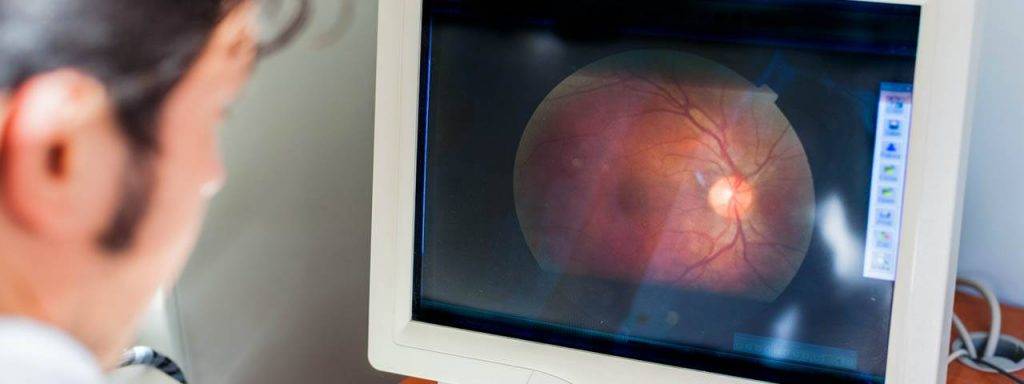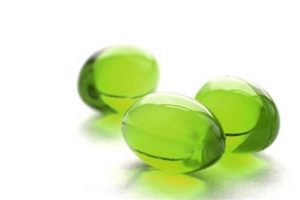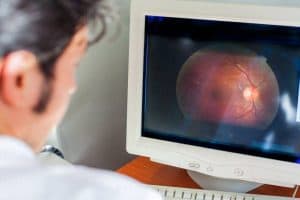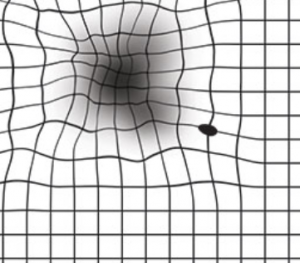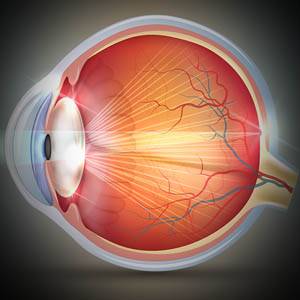Most people over age 60 are more likely to develop drusen, an early sign of macular degeneration.
What are retinal drusen?
Retinal drusen are yellow-colored deposits made up of proteins and lipids that form behind the retina of the eye. The retina is a layer of cells that line the inside surface of the back of the eye and transmit information to the brain, allowing you to see.
Drusen are often the first signs of age-related macular degeneration.
Small drusen may not create vision problems, but larger drusen increase the risk of developing age-related macular degeneration (AMD).
Types of retinal drusen
There are two types of retinal drusen – soft and hard.
- Soft drusen have a dome shape and are large and raised. They are pale yellow or grayish-white in color. If you have a lot of large or medium-sized soft drusen, you’re more likely to suffer from vision loss in the future.
- Hard drusen are abnormal tissue growths that are small, dotted, and yellow. When the drusen are hard, your chances of future vision loss is lower than with soft drusen.
Symptoms of retinal drusen
People typically learn that they have drusen during a comprehensive eye exam.
The presence of a few tiny drusen doesn’t necessarily mean you have an eye condition.
The more of the larger sized drusen you have, the greater the risk that you may develop or already have age-related macular degeneration.
In its initial stages, AMD typically presents with no noticeable symptoms.
Symptoms of AMD include:
- Cloudy or dim vision
- Blank or blurry spot in your central vision
- Difficulty seeing at night and in poorly lit places.
SEE RELATED: What is Macular Degeneration?
If you’ve experienced any of the above symptoms contact an eye doctor near you.
What causes retinal drusen?
Aging can lead to the formation of retinal drusen, as they are commonly seen in people over the age of 60.
Dry macular degeneration is responsible for 90% of drusen. Wet macular degeneration is responsible for the remaining 10% of drusen.
In dry macular degeneration, your central vision gets blurry or worsens, because of the shrinking of the macula, the central part of your retina. Dry macular degeneration can gradually rob you of your sight.
In wet macular degeneration, your vision may become blurry or you may notice a blind spot in your field of vision. This condition is caused by abnormal blood vessels in the macula that rupture, bleed, or leak fluid, resulting in a rapid and often severe loss of vision.
What are the risk factors?
While adults over the age of 60 are more likely to develop retinal drusen, there are other factors that can raise your chances of developing this condition:
- Smoking
- Excessive body fat
- High blood pressure
- High blood cholesterol
- Family history of retinal drusen
Caucasian people are more likely to develop retinal drusen and age-related macular degeneration.
How to treat retinal drusen?
1. Vitamins
If your age-related macular degeneration progresses, you may lose your eyesight. If you have a lot of large or medium-sized drusen, your eye doctor will likely prescribe AREDS2 formula vitamins, which have been found to slow down the progression of AMD.
According to The Age-Related Eye Disease Study (AREDS) taking these vitamins reduces the risk of developing AMD by 19% and reduces the risk of visual loss by 25%.
Vitamin C, Vitamin E, the antioxidants lutein and zeaxanthin, as well as the minerals zinc and copper, are all included in the composition.
2. Lifestyle and dietary changes
Your doctor may advise you to make adjustments to your lifestyle, such as quitting smoking.
They may advise you to include extra veggies, fruits, and fatty fish like salmon and mackerel in your diet. To lower your blood cholesterol, you may be advised to eat less red meat.
3. Routine eye exams
The importance of early detection cannot be emphasized enough.
If you have drusen, your doctor may urge you to use the Amsler Grid to check your eyesight at home.
If wet macular degeneration is discovered early enough, your doctor may be able to use injectable medication to stabilize or improve your vision. You can slow down complications and prevent visual loss if AMD is caught early.
LEARN MORE: Guide to Eye Conditions
Schedule an eye exam with an eye doctor near you who can detect any underlying eye conditions you may have.

